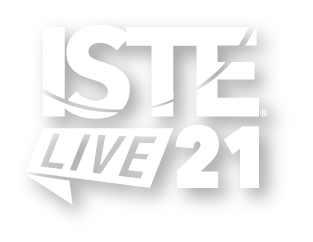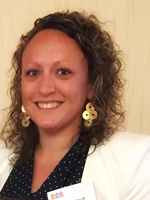

Playground Projects in Early Childhood Edtech |
Participate and share : Poster
Angie Kalthoff
Educators who attend this session will see how students can be active learners with the use of content-facing edtech tools. They will then see how students are able to share their knowledge in creative apps. They will learn ways to organize and share with families.
| Audience: | Coaches, Library media specialists, Teachers |
| Skill level: | Beginner |
| Attendee devices: | Devices not needed |
| Topic: | Innovation in early childhood/elementary |
| Grade level: | PK-2 |
| Subject area: | Computer science, STEM/STEAM |
| ISTE Standards: | For Students: Knowledge Constructor
|
| Disclosure: | The submitter of this session has been supported by a company whose product is being included in the session |
Participants will know how educators have help their students conduct research in a hybrid setting over the past school year.
Participants will see examples of student artifacts.
Participants will have access to learning materials after the poster session.
Participants will learn about research based models and frameworks to support their planning.
-Tufts DevTech Research Lab
-Dr. Marina Umaschi Bers Playground/Playpens and Positivie Technological Development
-Dr.Amanda Sullivan sterotypes around girls in STEM
- Mitch Resnic the Creative Learning Spiral
-Fred Rogers research around play
-NAEYC - Screen time recommendations
-CSTA framework and voice
TEDx Talks:
https://www.youtube.com/watch?v=jOQ-9S3lOnM
Books:
Bers, M.U. (2018). Coding as a Playground: Programming and Computational Thinking in the Early Childhood Classroom. New York, NY: Routledge Press.
Bers, M. U. (2012). Designing Digital Experiences for Positive Youth Development: From Playpen to Playground. Cary, NC: Oxford.
Book Chapters:
Bers, M., Lynch, A. D., & Chau, C. (2009). Positive technological development: The multifaceted nature of youth technology use towards improving self and society. In Ching, C.C. & Foley, B. J. (Eds.) Technology, Learning, and Identity: Research on the Development and Exploration of Selves in a Digital World. Cambridge University Press.
Research Articles:
Bers, M. U., González-González, C., & Armas–Torres, M. B. (2019). Coding as a playground: Promoting positive learning experiences in childhood classrooms. Computers & Education, 138, 130-145.
Strawhacker, A. and Bers, M. U. (2018). Promoting Positive Technological Development in a Kindergarten Makerspace: A Qualitative Case Study. European Journal of STEM Education, 3(3) 09. doi:10.20897/ejsteme/3869
Bers, M. U., Strawhacker, A. L., & Vizner, M. (2018). The design of early childhood makerspaces to support Positive Technological Development: Two case studies. Library Hi Tech. doi: 10.1108/LHT-06-2017-0112.
Portelance, D.J., & Bers, M.U. (2015). Code and Tell: Assessing young children’s learning of computational thinking using peer video interviews with ScratchJr: Proceedings of the 14th International Conference on Interaction Design and Children (IDC ’15). Medford, MA, June 21-25. New York, NY: ACM.
Bers, M.U. (2010). Beyond computer literacy: Supporting youth’s positive development through technology. New Directions for Youth Development, 128, 13-23.
Bers, M. (2007). Positive Technological Development: Working with computers, children, and the Internet. MassPsych, 51(1), 5-7, 18-19.
Bers, M. (2006). The role of new technologies to foster positive youth development. Applied Developmental Science, 10(4), 200-219.
